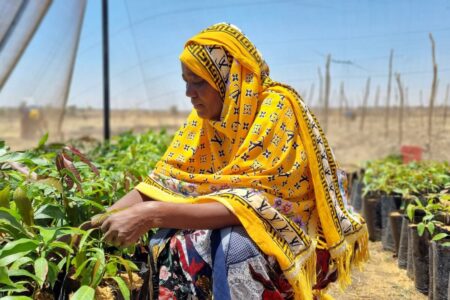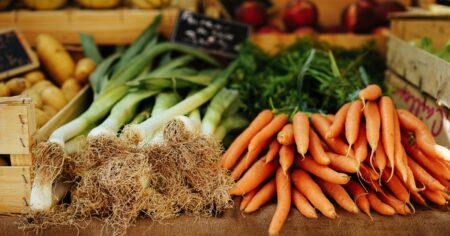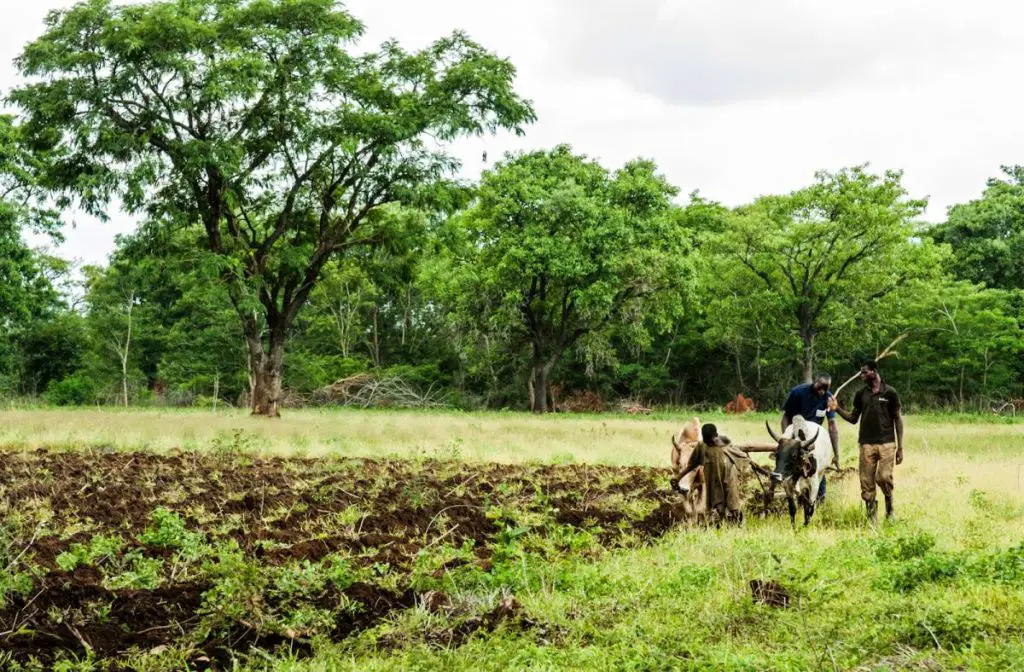- How transition finance can catalyse Africa’s green industrial revolution
- Stanbic PMI Report: Mixed performance as Kenya’s agriculture, construction offset manufacturing decline
- Uganda’s land management gets a tech makeover to boost transparency
- Nigeria’s output dips fastest in 19 months on a sharp rise in costs
- Apple faces growing backlash over Congo exploitation
- Why East Africa is staring at higher wheat prices in 2025
- Nairobi Gate SEZ pumps $7 million into Kenya’s agro-processing industry
- What impact will the US election have on Africa?
Browsing: farming in Africa
- Tanzania’s agriculture sector holds one-third of the country’s GDP and employs 75 per cent of the population.
- The government target is to raise crop exports by 48 per cent to $3.5 billion by 2025 as food shipments rise to overtake the value that Tanzania earns from its traditional export crops.
- Tanzania earned over $1.2 billion with the export of agricultural commodities in 2020.
An outlook into Tanzania’s agriculture sector
Numbers show that farmers are Tanzania’s most essential workforce. Tanzania’s agriculture sector holds one-third of the country’s GDP and employs 75 per cent of the population.
Available data shows that approximately 80 per cent of Tanzania’s exports are agricultural products such as coffee, cotton, sisal, tea, cashew nuts and tobacco, to mention a few.
From 2014 to 2020, the above crops benefitted the nation’s export baskets. Tanzania earned over $1.2 billion with the export of agricultural commodities in 2020, according to …
- Kenyan youth are frequently asked to consider farming as a way of making a living
- Some agree while others rubbish the trade saying it is difficult
- Challenges facing farmers in Kenya include the high cost of farming inputs, cartels along the production chain and lack of sufficient land for farming commercially
Kenyan youth have been urged time and time again to turn to farming to make a living, amid high levels of unemployment. They are also frequently asked to use farming as a means of increasing the amount of food produced in the economy to aid food security.
For instance, youths in Elgeyo Marakwet were recently urged to engage in crop farming for economic purposes. Crop farming would also reduce their over reliance on livestock farming, which has contributed to banditry in the region.
A finding by the Food and Agriculture Organisation (FAO) explains that agriculture contributes 33% to the …
Africa’s fast population growth exacerbates the issue. According to most estimates, Africa’s population will double by 2050 and then double again by 2100, finally reaching over 4 billion by the end of the century. Feeding Africa’s rising population will need considerable breakthroughs in the continent’s food systems.
However, agricultural progress may be difficult if African farmers are subjected to more severe climatic effects. To prepare for these future difficulties, one must understand how climate change will materialize in Africa and its impact on the continent’s agricultural systems.…
- Cocoa is a signature cash-crop for Ivory Coast
- US Department of Agriculture slated to invest $61 million in Ivory Coast cashew nut
- Ivory Coast economy is forecasted to expand by 6.7 percent in 2022
Ivory Coast is one of Africa’s largest farms. More than 60 per cent of the national territory is dedicated as arable agricultural land. Ivory Coast is one of the largest economies in the West African Economic and Monetary Union, and agriculture is its backbone. Cocoa production is the blood pumping through the economic veins of the Ivory Coast. The West African nation is not only the largest producer of Cocoa in the region but globally (contributing around 30 per cent).
In 2020/2021, Ivory Coast produced 2.15 million metric tonnes of cocoa beans. In Ivory Coast, the share of agriculture to the economy stood at 21.39 per cent in 2020.
The West African nation of more
Across the region, agriculture has been a crucial economic activity that has to levitate communities’ economies and promote some major changes, in farmer’s lives.
Farming has changed significantly over the past decade. This change has not occurred or is being adopted evenly across the globe. Europe, North, South America, and Asia have been developing and utilizing agriculture mechanization quite fast.
However, the latter has not been active in sub-Saharan Africa for a while. For the record, farming practices present during the 1960s when most of Africa, was liberating itself from colonial hands, are largely being divorced currently. …
[elementor-template id="94265"]
Kenya’s agriculture has beaten the odds of a difficult 2020 to end on a high, having registered one of the best growth trajectories across key segments in a long time.
Indeed these fortunes are attributable to fairly good weather and unprecedented coordination in delivery of inputs and services as witnessed during the Covid-19 lockdown when President Kenyatta on advice from the private sector placed agriculture among the essential services to be exempted from curfew. Not even the invasion of desert locusts early in the year and the hovering around of the pest dampened farm production. The government and private sector players quickly assembled an assault which, together with nature, subdued arguably the most dreaded crop insect.
The horticulture sector has registered a 140 per cent growth, up from 115 per cent the previous year in a season everyone expected a shrink in the general slow economic turnaround …
This article aims to highlight the challenges and implications of COVID-19 in the agricultural sector using current industry trends and outcomes to forecast the impact of the pandemic on agricultural value chains and consumer behaviour in the short, medium and long term. Most importantly, however, this report proffers actionable innovations and systems that can be adopted and scaled up to negate the effects of the pandemic on food supplies to urban areas and industrial processors in Nigeria.
WHERE WE ARE NOW:
Short term (1-3months)
- Disruption of supply chains due to inter and intrastate border closures. An example being the pileup of trucks on the Kano-Kaduna road due to shutdowns on what is a key route for national grain distribution.
- The stock of grains does not seem to be hampered but there is a risk it will if the









